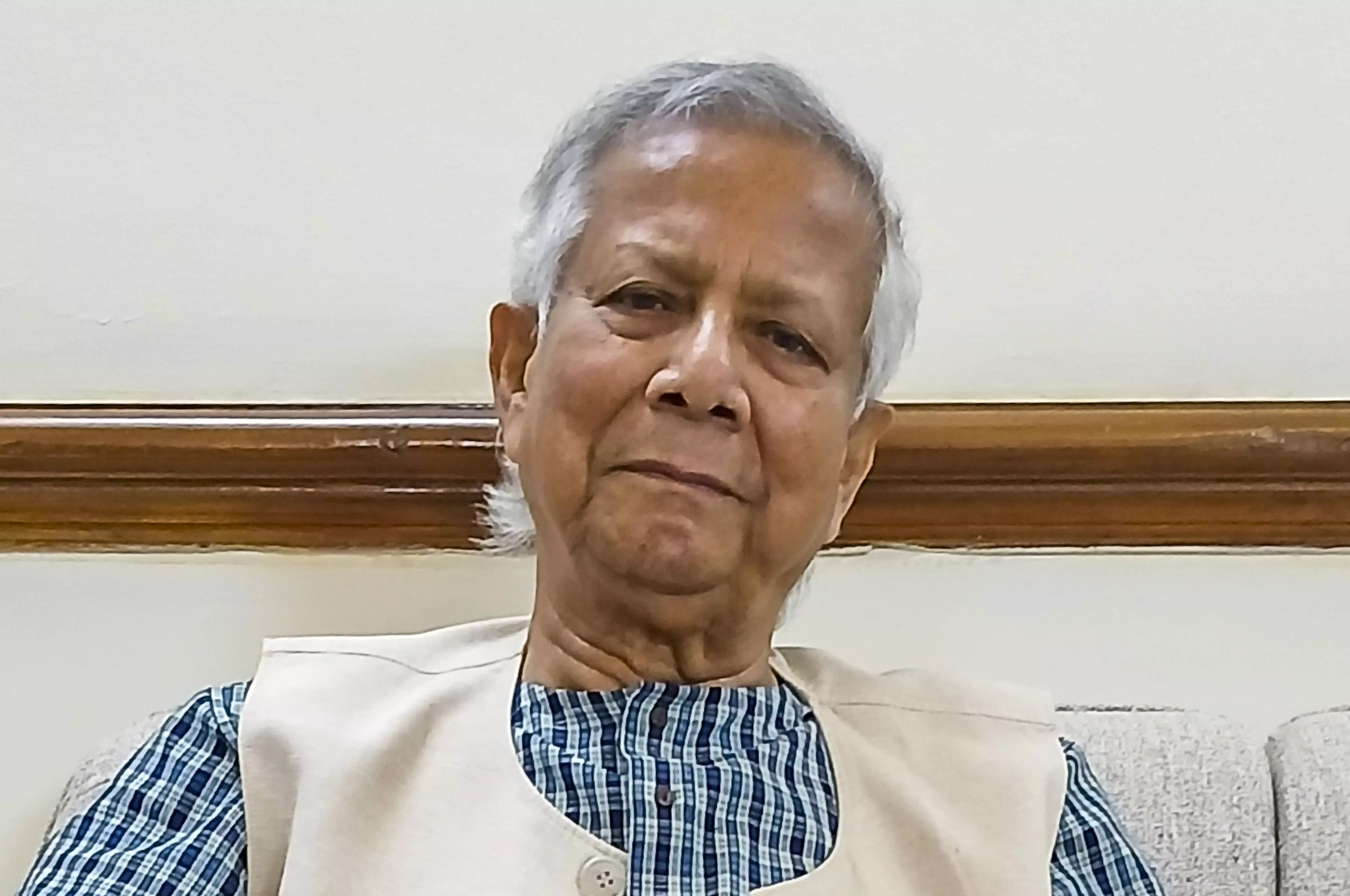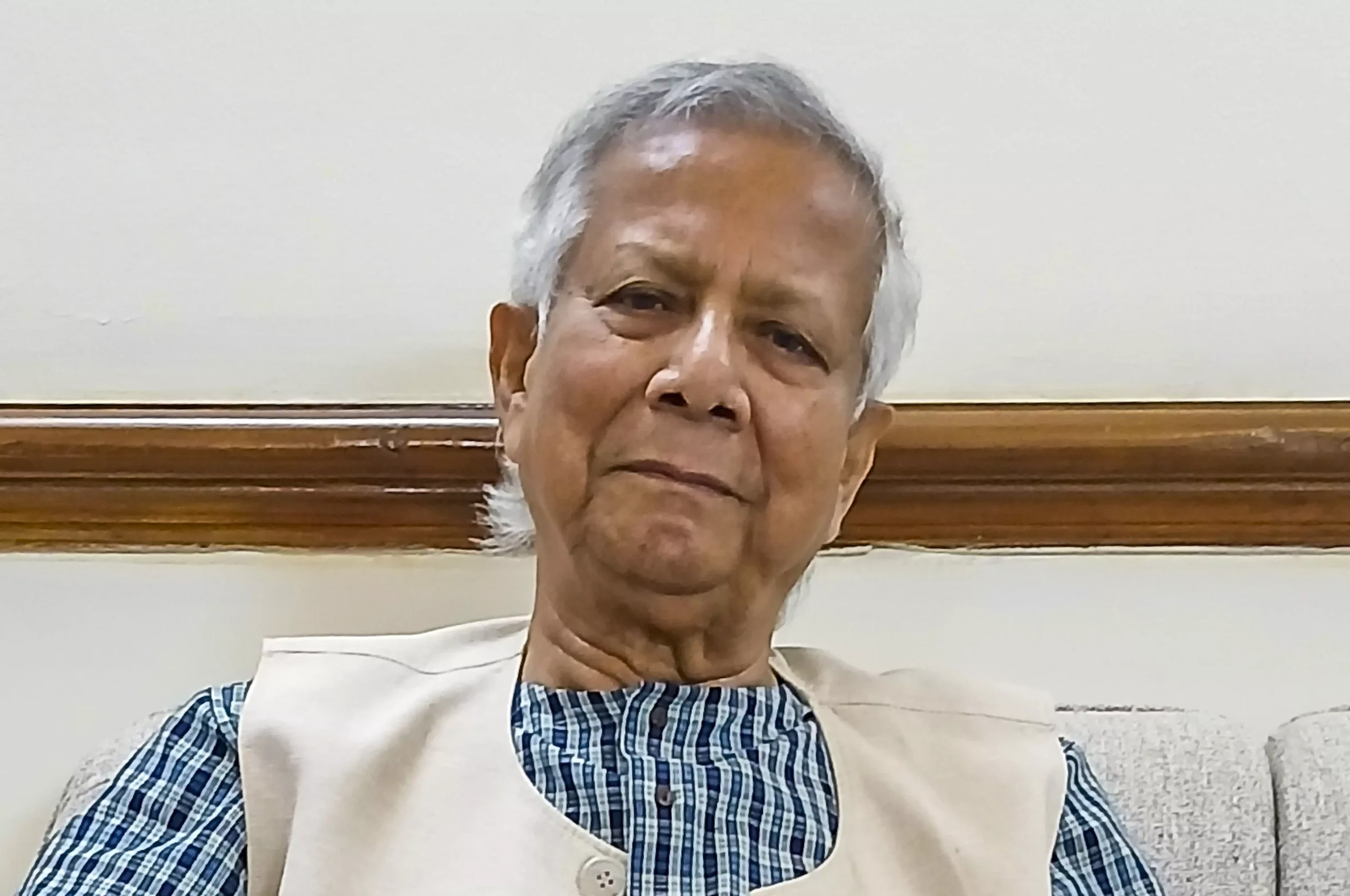
Bangladesh after the overthrow of Prime Minister Sheikh Hasina is reminiscent of a carnival on the morning after. The revellers are now left with the remains of the night. Will they be able to sweep away yesterday and start anew?
The indications so far are not encouraging. The obsession, as in the case of most revolutions, is with the past regime and its presumed wrongdoings. The rabble which overthrew the previous government and chose Nobel Prize-winning economist Muhammad Yunus as interim head of the country appears solely focused on punishing former Prime Minister Sheikh Hasina, who fled Bangladesh a month ago to evade mobs out to lynch her.
Sheikh Hasina’s father, Sheikh Mujibur Rahman, was also murdered in a coup in another August 49 years ago. Mujib, or Bangabandhu, as the founder of Bangladesh was popularly known, was a bitter opponent of the Islamists and pro-Pakistan elements responsible for the massacre of thousands of citizens during the country’s liberation struggle. His assassination was engineered by sympathisers of the very Islamist and pro-Pakistan forces Mujib had fought against. His killing, accompanied by the massacre of almost his entire family, including his wife, brother and three sons, had so shaken the world that the then German Chancellor Willy Brandt had remarked: “Bengalis can no longer be trusted after the killing of Sheikh Mujib. Those who killed Mujib can do any heinous act.”
Sheikh Hasina, unlike her late father, read the writing on the wall, and literally ran for her life leaving everything behind in her grand official residence. An Air Force transporter piloted by a loyal crew flew her to New Delhi, a safe haven and exile.
Back in Dhaka, her opponents enraged by her escape have been single-mindedly adding up the charges against her, which include 85 cases of murder. The new government holds her personally responsible for the admittedly brutal police crackdown on rioters during the agitations that led to her downfall.
The charges against her ignore the fact that the student rebels and their supporters had themselves perpetrated considerable violence, including destruction of police outposts and other public facilities.
The headquarters of the state-run Bangladesh Television in Dhaka was set on fire and a jail attacked from where criminals and Islamist extremists were set free.
Leading the criminal charges against Sheikh Hasina is the head of the nterim government, Mr Yunus, who has reason to hate Sheikh Hasina. During her tenure he was slapped with almost 100 cases and earlier this year convicted of a crime related to the country’s labour laws. He had also been charged with money-laundering and other dubious dealings. Not surprisingly, one of his first acts as the interim head of government was to drop all the cases against him without recourse to any judicial overview, and instead to institute criminal cases against Sheikh Hasina. The shoe clearly is on the other foot. The security crackdown against the uprising is reported to have cost 400 lives, including that of 32 children. While this is reprehensible and suggests the use of excessive force, the killing of at least 250 members of the minority community and others after the collapse of the Hasina government is equally unacceptable.
Several Awami League leaders have also been selectively eliminated. While the interim government is meticulously framing charges against the ousted Prime Minister, no investigation is underway to fix responsibility for the killings and mayhem unleased after the coup, especially on the country’s helpless minority Hindu population.
The country’s secular forces and its minorities have been further terrorised by the interim government’s decision to legitimise powerful Islamist organisations like the Jamaat-e-Islami, which was banned by the previous government for its history of butchering thousands of Bangladeshis during the liberation struggle. Equally alarming was the release of Jashimuddin Rahmani, chief of Islamist outfit Ansarullah Bangla Team, who was in jail for abetting the killing of various secular bloggers and journalists, including Rajib Haider, who was hacked to death with machetes in 2013.
All this is happening in the backdrop of an assault on the judiciary. Terrified by threats from the rabble, Chief Justice Obaidul Hassan and several other judges quit their offices last month, only to be replaced by justices handpicked by the interim administration. The judiciary, thus intimidated, has been reduced to the status of an accessory to the interim government, which holds supreme authority without a shred of legal or constitutional cover. Rather than seeking reconciliation and healing the wounds following the uprising, the interim government seems bent on heaping the blame of all the country’s ill on the country’s exiled Prime Minister and her party, the Awami League. Even the economic successes of the Hasina government are being portrayed as a big hoax.
Economist Debapriya Bhattacharya has been tasked to produce a “white paper” documenting the economic mismanagement under Sheikh Hasina’s rule. This despite the fact that Bangladesh had witnessed the best economic phase in its history during her tenure. During 2009-2024, the economy had grown at an average rate of 6.3 per cent per annum, with GDP soaring from $123 billion to $455 billion. The per capita GDP also soared from $841 to $2,650 in the same period.
Now the interim government is bent upon proving that this was all fictitious! Economist Bhattacharya recently claimed: “Data were manufactured. Data were suppressed. I call that data anarchy.”
Sadly, by distorting the past and reigning over a deeply divided country, little can be done to tackle the country’s present economic problems, which include high inflation (over nine per cent), massive debt, both domestic and foreign, a deflating currency and slowing growth. The rising dollar, the Ukraine war and slowing foreign investment flows had exerted severe pressures on the Bangladeshi taka, which like many world currencies dropped against the dollar, thus pushing up import costs and prices while making debt servicing all the more costly.
The interim government’s strenuous efforts to make Sheikh Hasina the scapegoat for the country’s economic woes is not going to turn the situation around. Nor will the interim regime’s attempts to wreck relations with neighbouring India, its most important economic partner. Bangladesh is dependent on India for a variety of products, the most important of which are food items, including vegetables, meat on the hoof, rice, tea and much more.
Bangladesh’s search for scapegoats will yield little in the long run and instead condemn it to trundle towards an unremarkable future.
